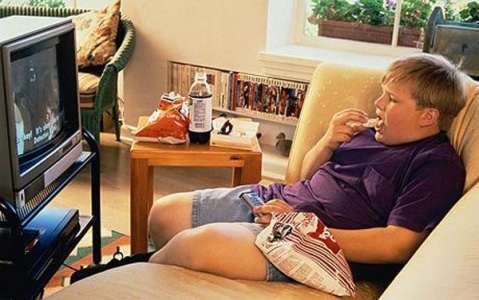Let’s start with the doctor as, in this case, it’s a doctor who has ignited the row. David Ludwig runs an obesity clinic where, ten years ago, a little three-year-old girl was brought to his attention.
At least, she should have been little.

By last year, aged 12, she was up to a life-threatening 185 kg, with attendant problems such as diabetes and soaring blood pressure. We can only guess her score for self-esteem.
From Dr Ludwig’s clinic in Massachusetts, in the U.S., the state authorities took the girl straight to a foster home; there, she was fed three light meals a day, a couple of snacks and a therapeutic dose of physical activity.
As a result, she lost 60 kilos in the first year. Now, she is
The uproar that has greeted his proposition comes as no surprise.
Here in Australia, although not as bad as in the U.S. and the UK ,we moan, usually correctly, against the clutches of the Nanny State. Our blood chills when interfering social workers tear families apart for reasons of scant, if any, merit.
Besides, we were taught from birth that ‘mother knows best’, and we continue to insist that this is the case when we raise children of our own.
When we sometimes, privately, feel we haven’t a clue how best to be parents, we’ll be darned if we’re going to admit it.
Even when a mother is literally killing her children with deep-fried, chocolate-covered kindness, it is counter-intuitive for her to listen to criticism of the way she is performing that most basic of womanly tasks: bringing up baby.
I do, in fact, have a sneaking sympathy for some among such misguided parents…although plenty of people don’t. Take Tam Fry, chairman of Britain’s Child Growth Foundation, who doesn’t mince his words at all; he calls the stuffing of children’s already fat faces ‘a form of child abuse’.
‘Children are vulnerable,’ he says. ‘If they’re given food and told to finish what’s on the plate, they’ll eat it…and, without exercise, get bigger and bigger.’
Some social workers have been similarly forthright, defining overfeeding as neglect and using it to support bids to try to remove children from their parents.
In certain cases, this is already happening, and although the secrecy of our family law courts forbids us to know exactly how often, estimates suggest as many as 20 times in a year.
Certainly some parents are downright neglectful; those who compensate for a can’t-be-bothered attitude towards their children with six hours of flat-screen TV and a hillock of crisps. But there are others who struggle harder to do the right thing.
Sometimes…perhaps especially where both parents are in full-time jobs…they feel just too tired to make that extra effort to squeeze in a football knockabout in the park after school with their child, for instance, or serve fresh veggies instead of frozen chips after eight hours at the coalface.
Occasionally it’s a deadly overdose of what I’d call upside-down love, child expresses happiness at a sweet treat. But in reality, it’s down to lazy, thick parents who find it easier to give in rather than confront and deal with the problem.
by Susan Floyd

